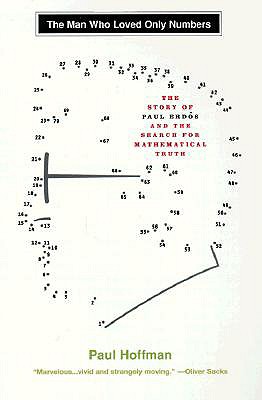
Hoffman, Paul
product information
description
rtrait of one of the most brilliant and eccentric men in history." --The Seattle Times Paul Erdos was an amazing and prolific mathematician whose life as a world-wandering numerical nomad was legendary. He published almost 1500 scholarly papers before his death in 1996, and he probably thought more about math problems than anyone in history. Like a traveling salesman offering his thoughts as wares, Erdos would show up on the doorstep of one mathematician or another and announce, "My brain is open." After working through a problem, he'd move on to the next place, the next solution. Hoffman's book, like Sylvia Nasar's biography of John Nash, A Beautiful Mind, reveals a genius's life that transcended the merely quirky. But Erdos's brand of madness was joyful, unlike Nash's despairing schizophrenia. Erdos never tried to dilute his obsessive passion for numbers with ordinary emotional interactions, thus avoiding hurting the people around him, as Nash did. Oliver Sacks writes of Erdos: "A mathematical genius of the first order, Paul Erdos was totally obsessed with his subject--he thought and wrote mathematics for nineteen hours a day until the day he died. He traveled constantly, living out of a plastic bag, and had no interest in food, sex, companionship, art--all that is usually indispensable to a human life." The Man Who Loved Only Numbers is easy to love, despite his strangeness. It's hard not to have affection for someone who referred to children as "epsilons," from the Greek letter used to represent small quantities in mathematics; a man whose epitaph for himself read, "Finally I am becoming stupider no more"; and whose only really necessary tool to do his work was a quiet and open mind. Hoffman, who followed and spoke with Erdos over the last 10 years of his life, introduces us to an undeniably odd, yet pure and joyful, man who loved numbers more than he loved God--whom he referred to as SF, for Supreme Fascist. He was often misunderstood, and he certainly annoyed people sometimes, but Paul Erdos is no doubt missed. --Therese Littleton
member goods
No member items were found under this heading.
Return Policy
All sales are final
Shipping
No special shipping considerations available.
Shipping fees determined at checkout.







